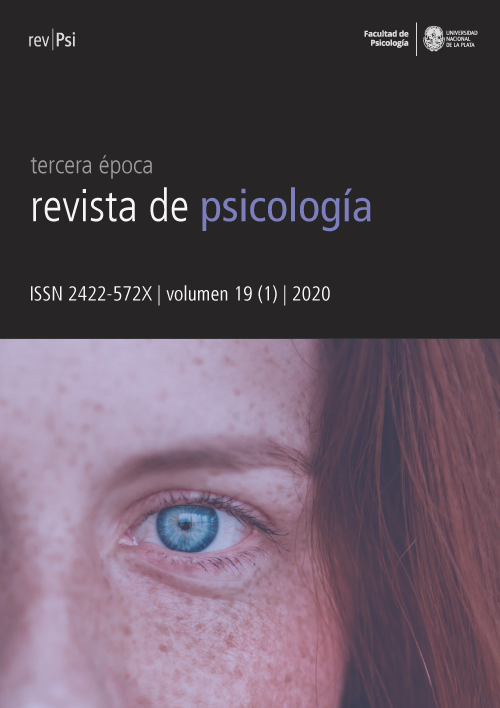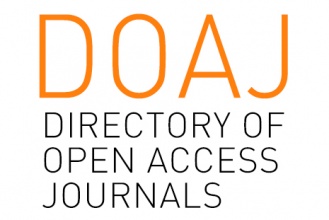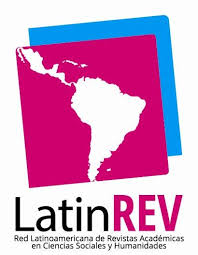Subjectivities, otherness and narratives in the study of the habitability of housing complexes
DOI:
https://doi.org/10.24215/2422572Xe042Keywords:
subjectivities, habitability, housing complexes, social housingAbstract
Subjectivities are diversity products of situations and moments. The generality and ambiguity which they are studied has led several studies in social sciences make theoretical debates with emphasis on term understanding in function of its specific context and its impact on society. Its meaning comes to be associated with internal dynamics of the individual, so the theoretical positions adopted by sciences such as anthropology, sociology and cultural studies focus their interest on the recovery of the subject as a central and strategic element for the study of any phenomenon. The present article approaches from a critical position the modes of production of the subjectivities from its influence on the housing habitability, the importance of the otherness and the recovery of the discourse in the construction of the contemporary subjectivities.
Key words: subjectivities, habitability, housing complexes, social housing
Downloads
Metrics
References
Aquino Moreschi, A. (2013). La subjetividad a debate. Revista Sociológica, 29(80), 259-278.
Augé, M. (1996). El sentido de los otros. Paidós.
Brah, A. (1996). Cartographies of diaspora. Contesting identities. Routledge.
Briano, L. E. (2008). La ineficiencia del capitalismo en el proceso de construcción y expansión de la ciudad. El caso periurbano de Buenos Aires [Presentación en conferencia]. X Coloquio Internacional de Geocrítica, Barcelona.
Castells, M. (2004). La cuestión urbana. Siglo XXI.
Cortés, G. J. (2009). La ciudad cautiva, control y vigilancia en el espacio urbano. Akal.
Da Porta, E. (2013). Pensar las subjetividades contemporáneas: Algunas contribuciones de Mijail Bajtín. Estudios Semióticos, 9(1), 47-54.
Davis, M. (2003). Ciudad del cuarzo. Lengua de Trapo.
Foucault, M. (1975). Vigilar y castigar. El nacimiento de la prisión. Siglo XXI.
Gehl, J. (2009). La humanización del espacio urbano. Reverté.
Giglia, Á. (2012). El habitar y la cultura. Perspectivas teóricas y de investigación. Anthropos-Universidad Autónoma Metropolitana.
González Rey, F. (2008). Subjetividad social, sujeto y representaciones sociales. Diversitas, 4(2), 225-243.
Gottdiener, M. (1985). The social production of urban space. University of Texas.
Guattari, F. (1986). De la production de subjetivité. Chimères, 1-19.
Imilan, W., Olivera, P. y Beswick, J. (2016). Acceso a la vivienda en tiempos neoliberales: Un análisis comparativo de los efectos e impactos de la neoliberalización en las ciudades de Santiago, México y Londres. Revista INVI, 31(88), 163-190.
Janoschka, M. (2011). Geografías urbanas en la era del neoliberalismo. Una conceptualización de la resistencia local a través de la participación y la ciudadanía urbana. Investigaciones Geográficas, Boletín del Instituto de Geografía, UNAM, 118-132.
Lefebvre, H. (2013). La producción del espacio. Capitán Swing.
Lezama, J. L. (2002). Teoría social, espacio y ciudad. El Colegio de México, Centro de Estudios Demográficos y de Desarrollo Urbano.
Monnet, J. (1996). Espacio público, comercio y urbanidad en Francia, México y Estados Unidos. Alteridades, 6(11), 11-25.
Rémy, J. y Voyé, L. (1974). La ville et l’urbanisation. Modalités d’analyse sociologique. Éditions J. Duculot S.A.
Saunders, P. (2011). Social theory and the urban question. Richard T. Le Gates and Frederic Stout.
Theodore, N., Brenner, N. y Peck, J. (2009). Urbanismo neoliberal: La ciudad y el imperio de los mercados. Temas Sociales, 66, 1-19.
Zibechi, R. (2008). Autonomías y emancipaciones. América Latina en movimiento. Fondo Editorial de la Facultad de Ciencias Sociales de las Universidad Nacional Mayor de San Marcos y Programa Democracia y Transformación Global.
Downloads
Published
How to Cite
Issue
Section
License
![]()
Authors who publish in this journal accept the following conditions:
- Authors retain the copyright and assign the right of first publication to the journal, with the work registered under a Creative Commons attribution license (CC-BY), which allows third parties to use what is published whenever they mention the authorship of the work and the first publication in this magazine.
- Authors can make other independent and additional contractual agreements for the non-exclusive distribution of the article published in this journal (e.g., include it in an institutional repository or publish it in a book) as long as they clearly indicate that the work was published for the first time in this magazine.
- Authors are allowed and encouraged to publish their work on the Internet (e.g., on institutional or personal webpages) before and during the review and publication process, as it can lead to productive exchanges and greater and faster dissemination of published work (see The Effect of Open Access ).





































